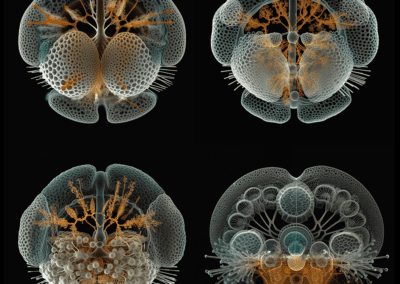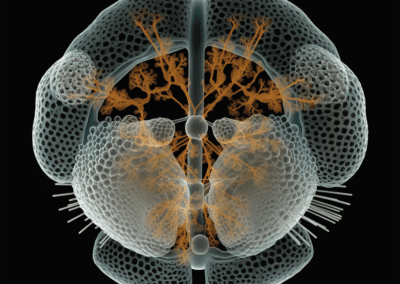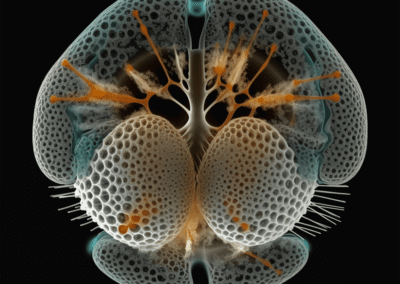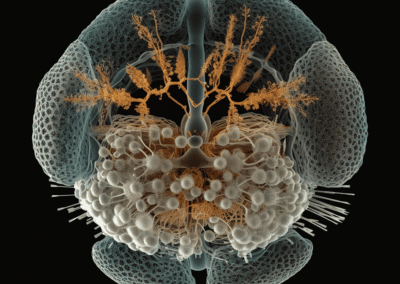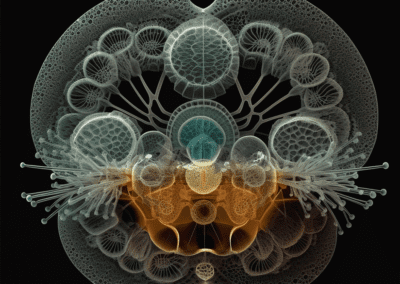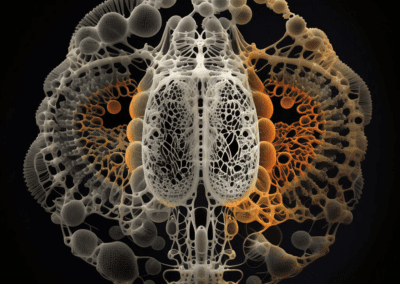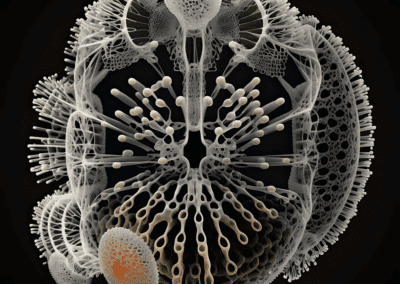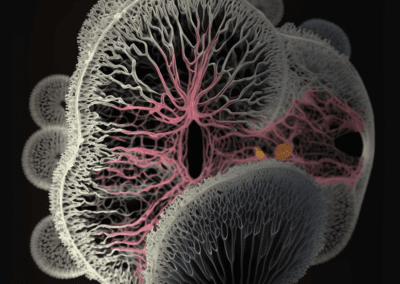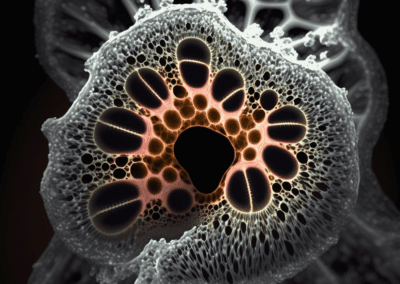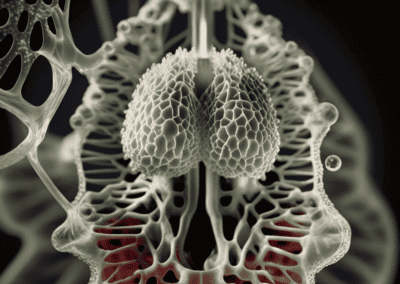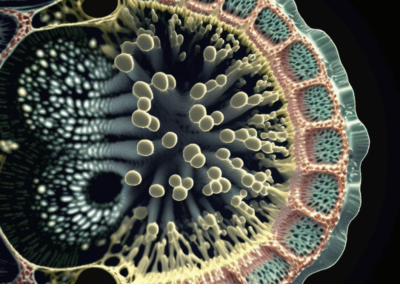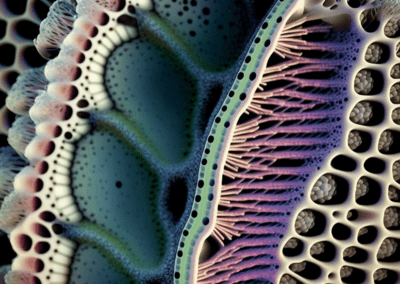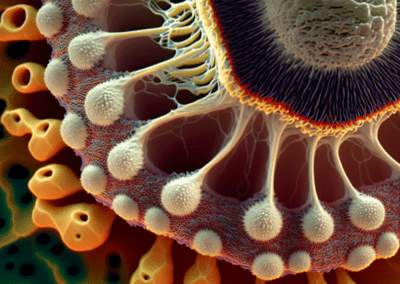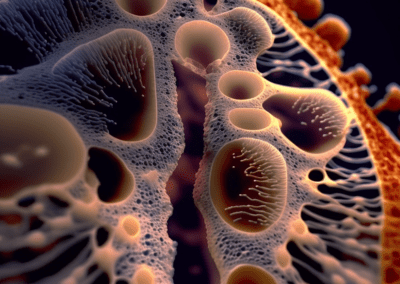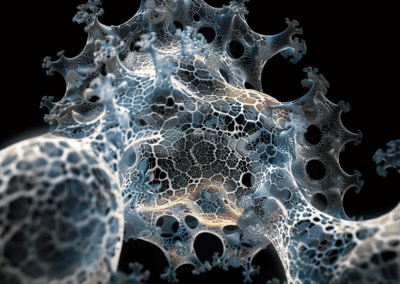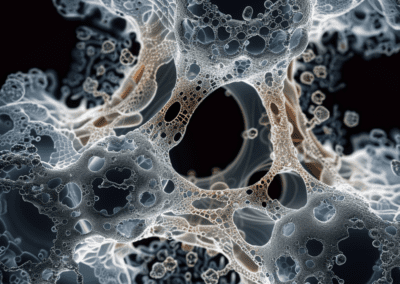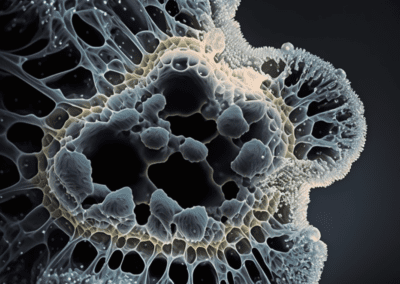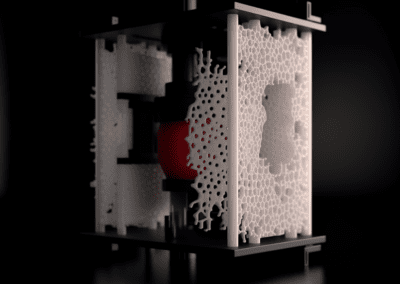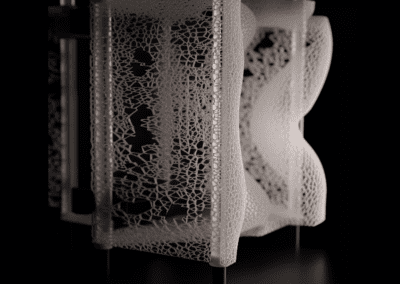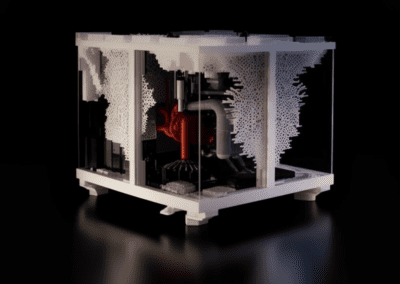BIODIGITAL ORGANISMS
2023-2024
Artist Amy Karle merges biological principles with computational design and Artificial Intelligence to create synthetic “bio-digital” life-like entities. These digital organisms serve as models to study the emergent properties of complex systems, prompting reflection on the nature of life and the potential for new forms of synthetic life within bio-digital ecosystems.
This project explores the future of life and intelligence, and the boundaries between natural and artificial systems, challenging our understanding of life in the digital era. It raises ethical and philosophical questions about our role as designers and creators and the responsibilities we bear in guiding the development and use of these technologies.
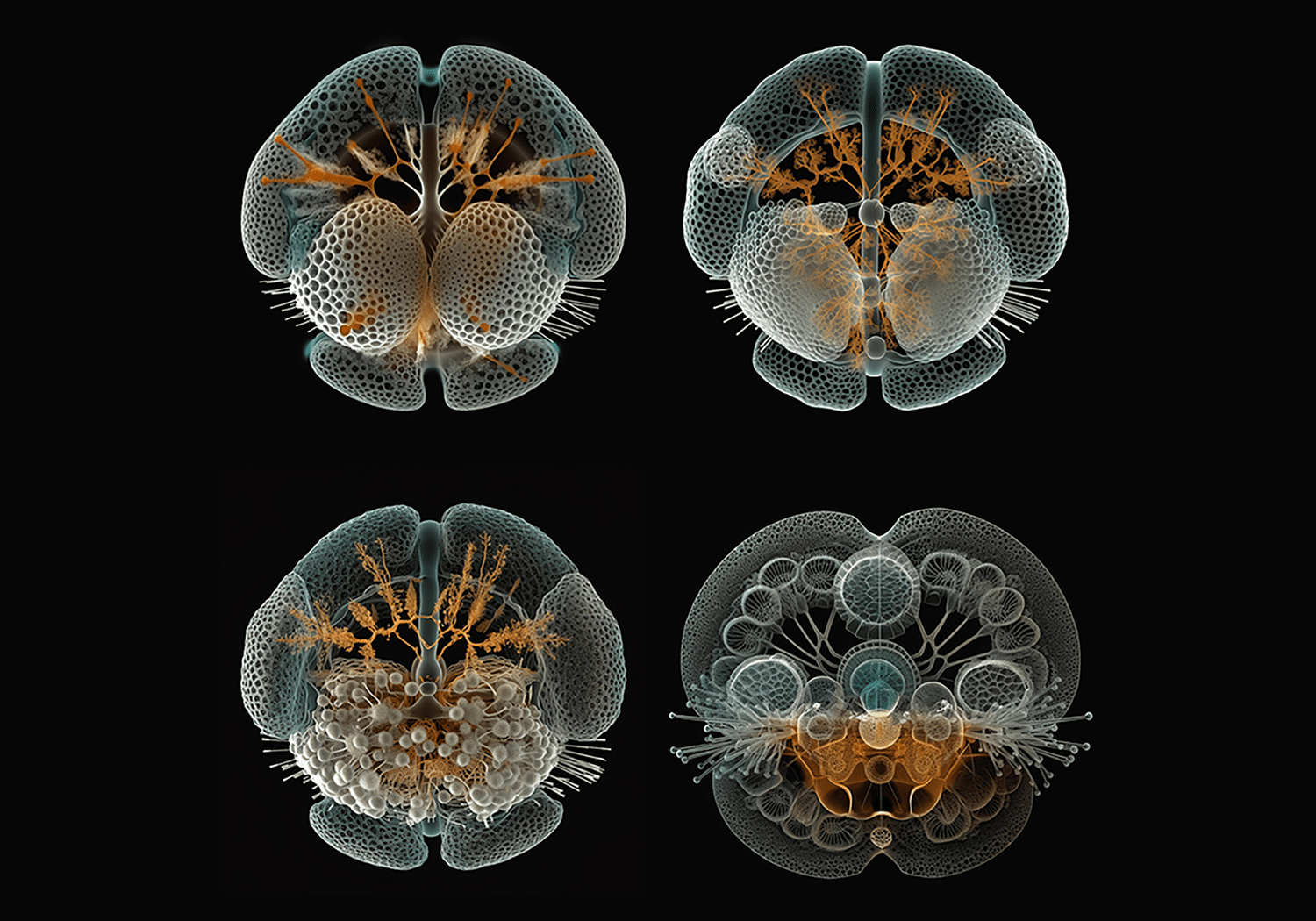
CONCEPT & CONTEXT
Developed during a period of rapid advancements in AI x biotechnology, this project resides at the intersection of digital design and biological realms. It addresses the potential of design and technological integration to redefine life and intelligence.
The project explores the interplay between biological intelligence and artificial systems, probing the essence of life in the digital era. By setting initial design constraints, conditions and rules for evolution based on natural intelligence, the project allows AI to generate entities with lifelike cellular traits and architectures through digital evolution. It presents new avenues for designing synthetic life. BioDigital Organisms opens possibilities for the design, envisioning, and development of intelligent systems that can learn and grow autonomously.
The project explores the essence of life and natural intelligence x artificial intelligence, and the potential for designed, synthetic entities to exhibit intelligence. It invites exploration of the ethical and existential implications of designing and creating digital life forms and their place in the broader context of human, environmental, and artificial evolution.
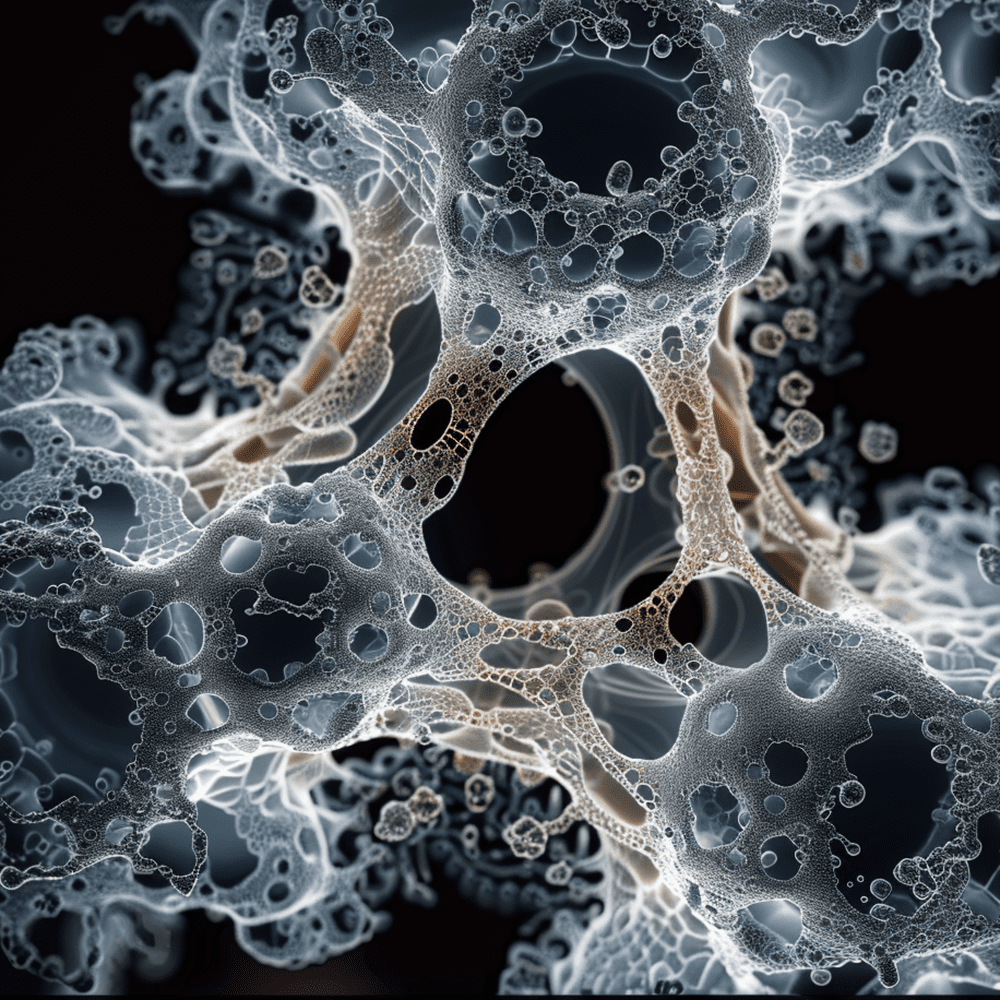
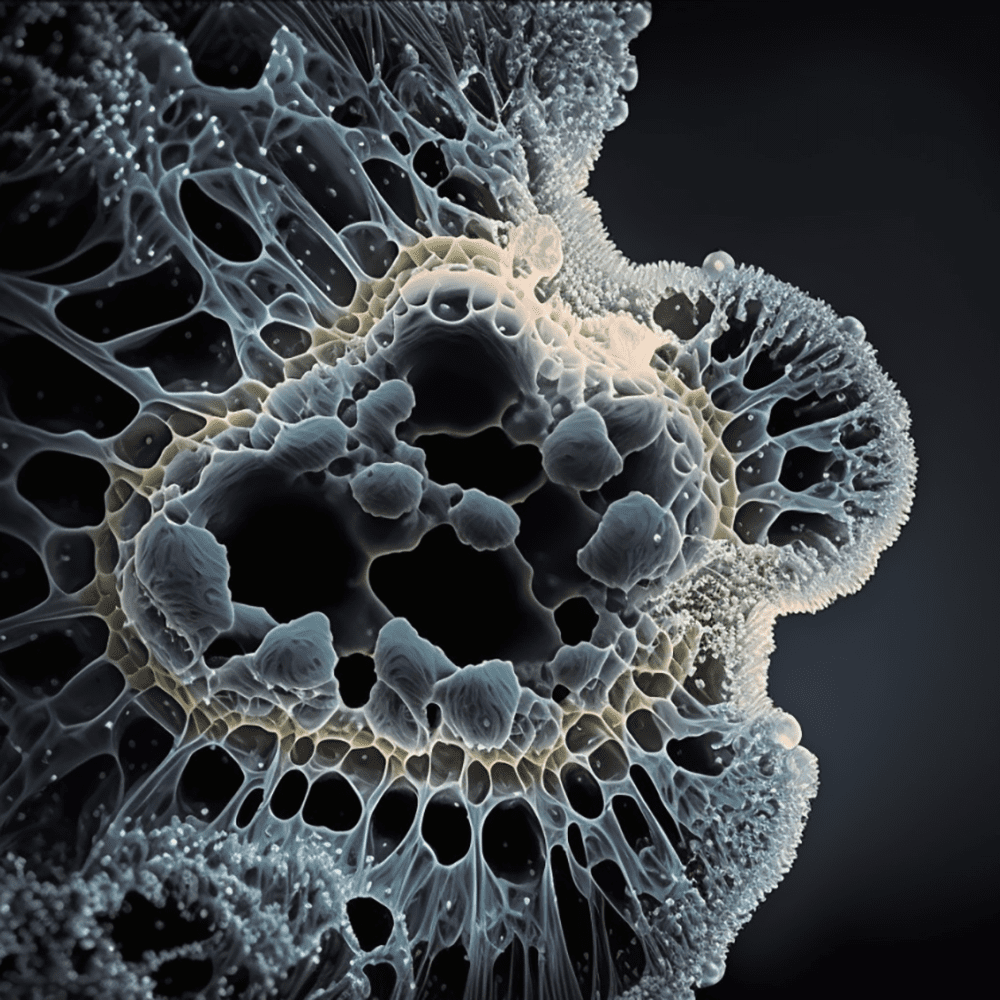
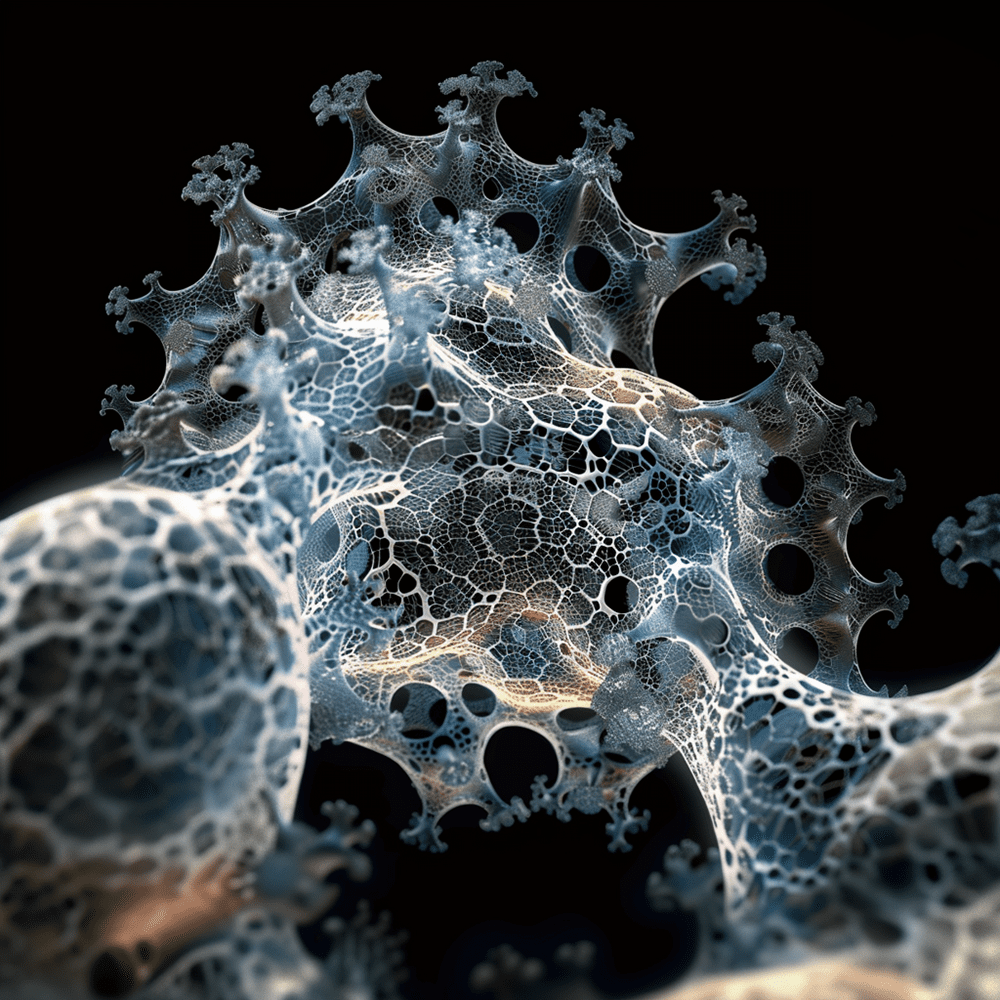
INNOVATION
This project pioneers the integration of AI in biodesign, combining digital design and biological principles to generate lifelike entities. AI algorithms simulate growth, interaction, adaptation, and rare biological events, which can be tested in silico. This showcases the potential of digital environments to synthesize, predict, and analyze biological complexity. By simulating biological processes digitally, BioDigital Organisms minimize the need for physical resources, or dangerous outcomes, contributing to environmental sustainability and opening new avenues for in silico design and innovation in biotechnology.
- Presents new avenues for designing synthetic life
- Creates a novel framework for envisioning emergent properties of complex systems
- Pushes digital design and biodesign, showcasing the potential for digital technologies to discover, design, create, and host new forms of synthetic life
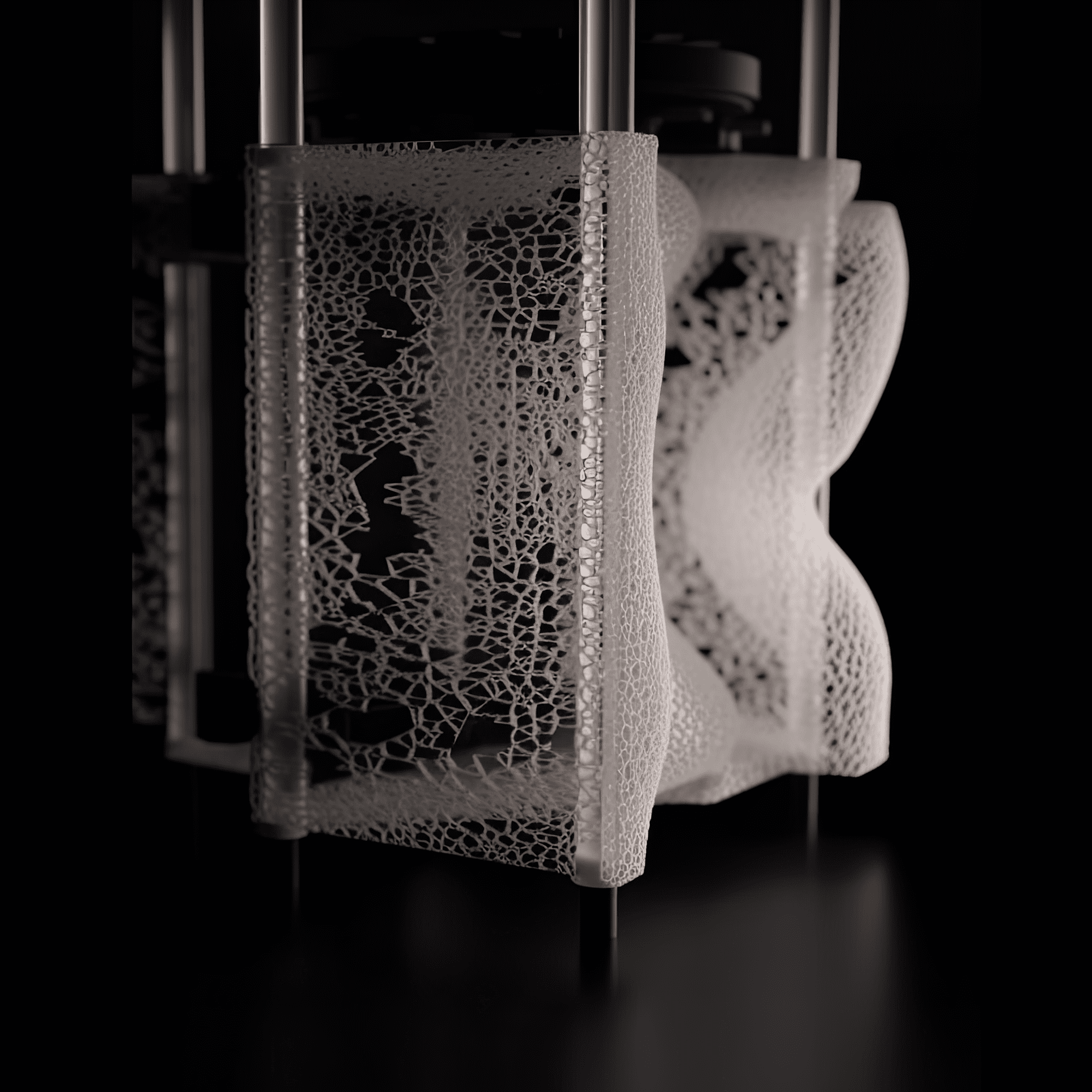
AI-Assisted Design for a Generative Bioreactor Amy Karle, 2022
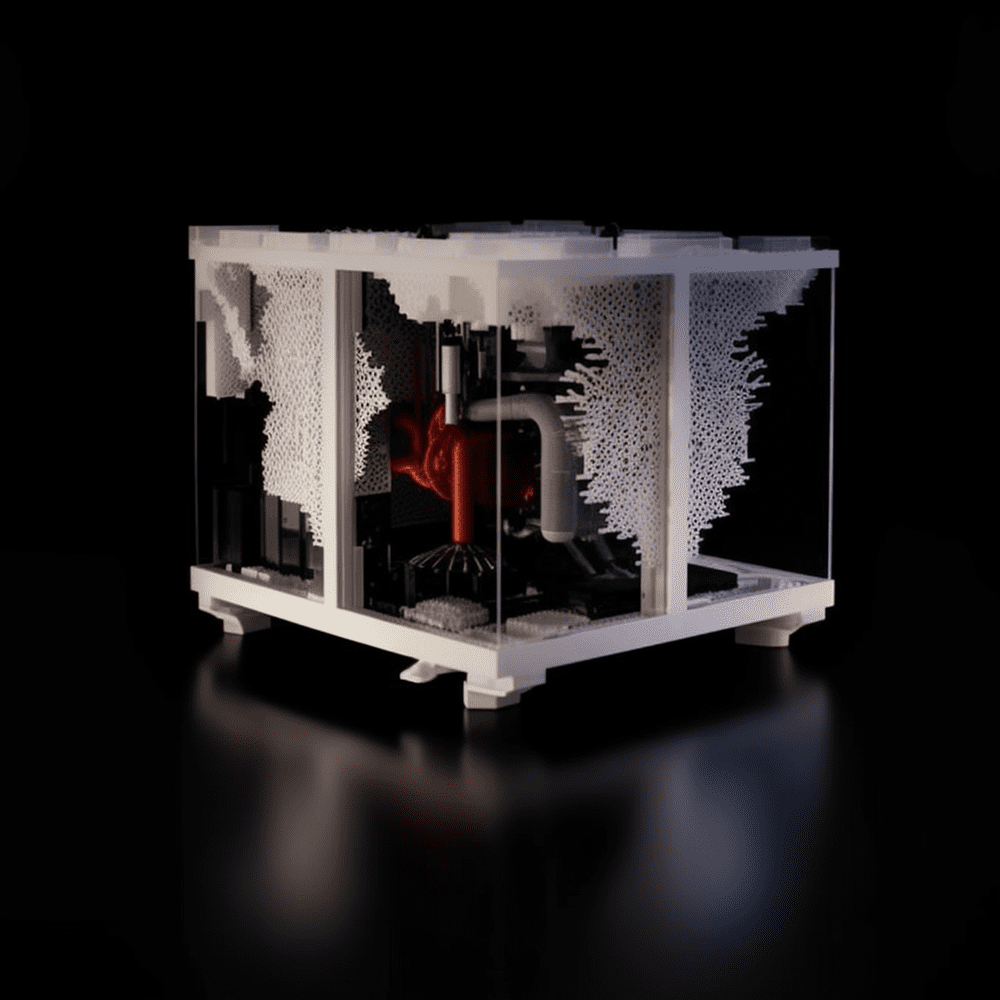
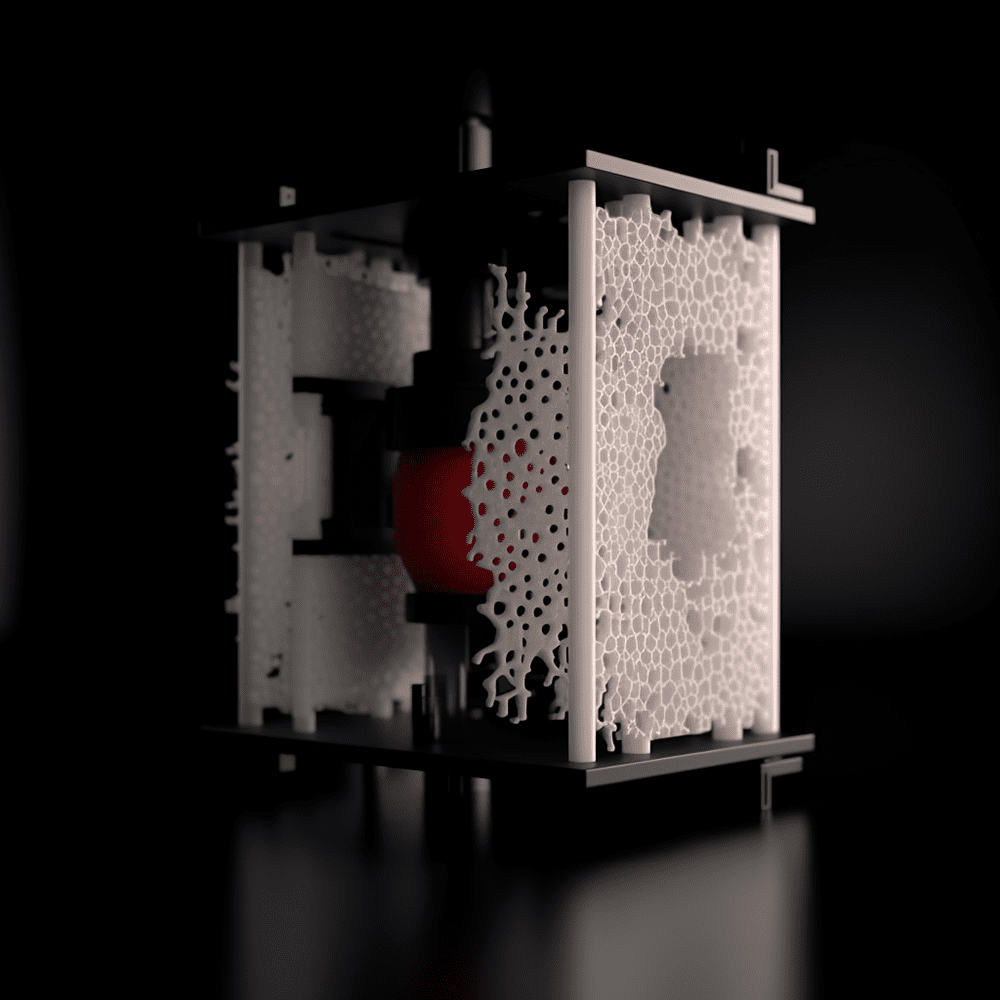
IMPACT
BioDigital Organisms challenges traditional notions of what is life and intelligence. The work urges us to reconsider these concepts in a digital context, sparking critical discourse on the intersection of design, technology, and biology. This project inspires and calls for a deeper understanding of life in the digital age. It invites broader reflections on the ethical and philosophical implications of creating synthetic life, contributing to global dialogue on responsible technological development.
- Opens minds to contemplate how to design synthetic and bio-digital life forms
- Sparks critical discourse on the ethical implications of synthetic life and AI integration with biological systems
- Offers new avenues for scientific design and exploration, potentially reducing reliance on physical experiments
- Provides a platform for sustainable innovation in biotechnology, regenerative medicine, and environmental science
- Inspires future research into the fundamental principles governing living systems
- Serves as a catalyst for reimagining the future of life and intelligence, pushing the boundaries of design, technology, and our understanding of life itself
- Included in Issues in Science and Technology, National Academy of Sciences, January 2024

